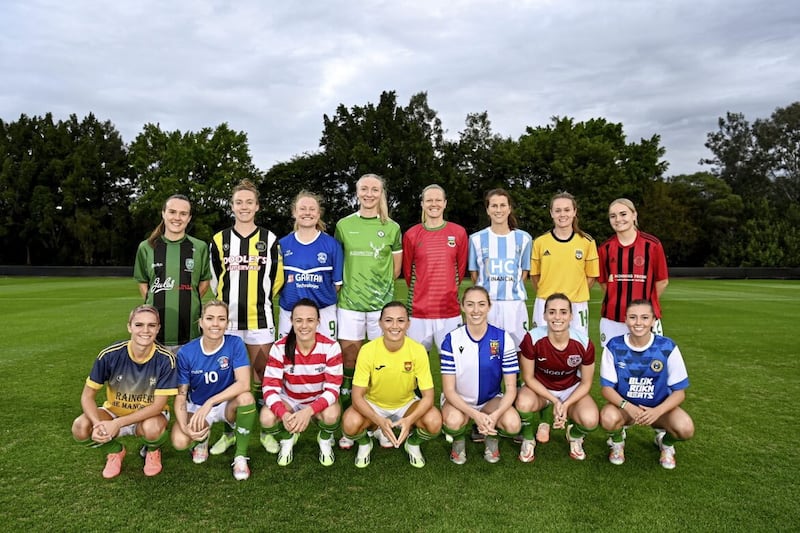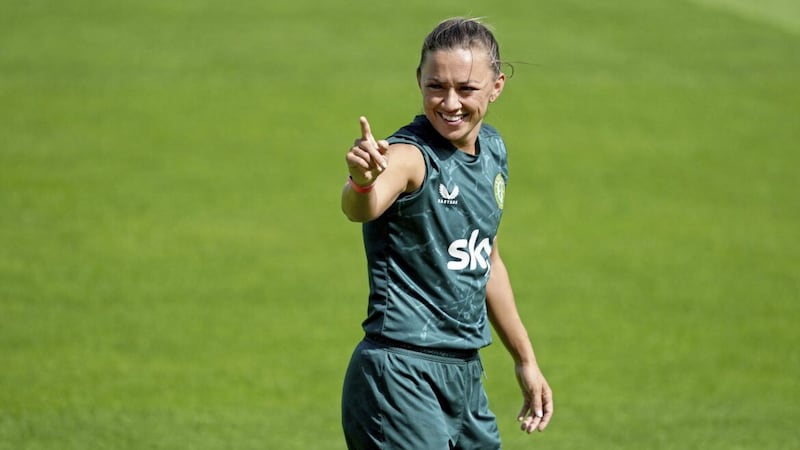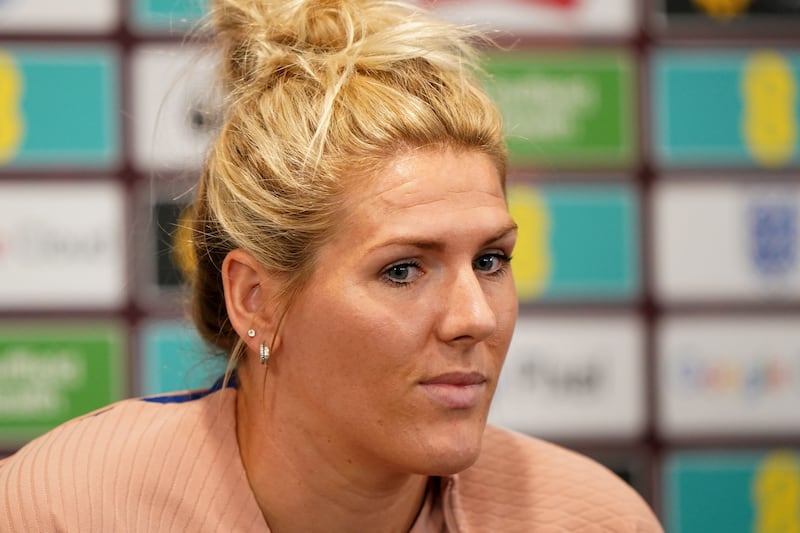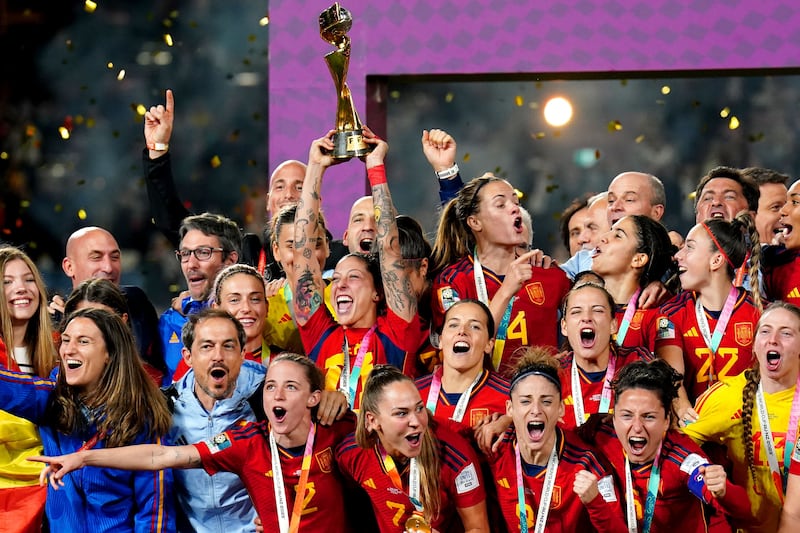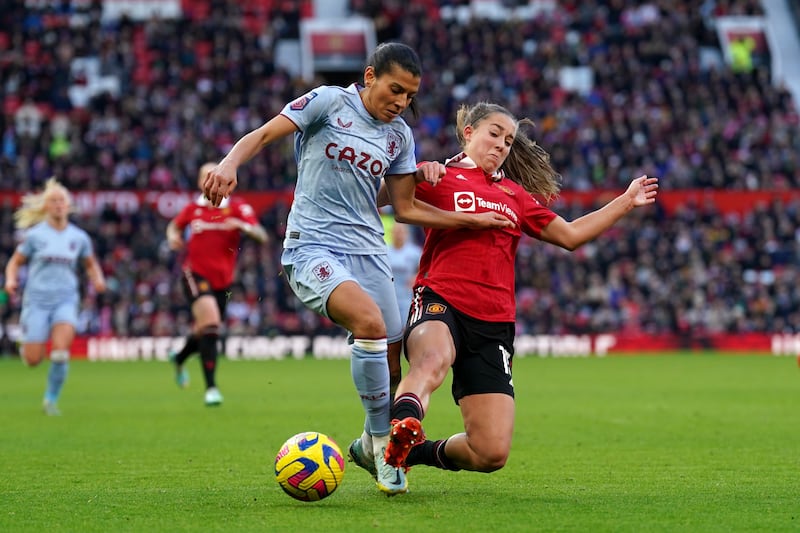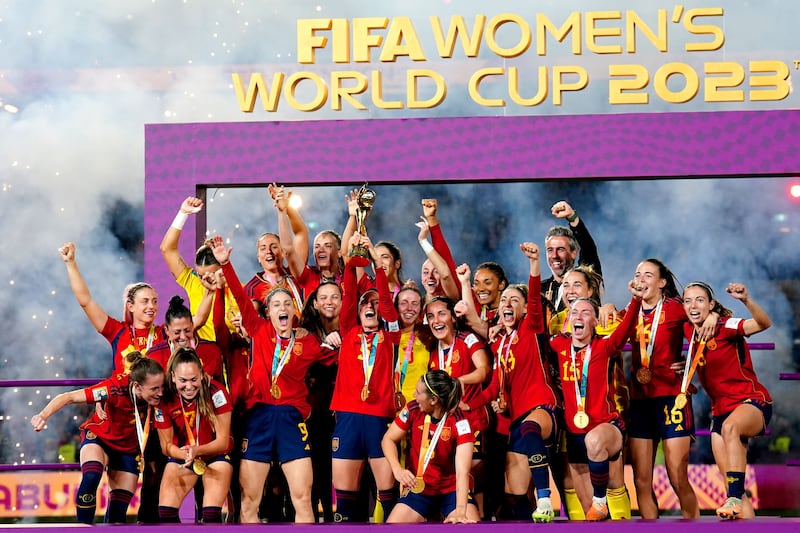WALKING around UCD’s O’Reilly Hall a few weeks ago was such an enjoyable and enlightening experience. It wasn’t the grandiose nature of the hall itself; it was the people inside it, the 23 female Ireland players bound for the World Cup in Australia and New Zealand, dotted around the room.
It was the squad’s media day before they headed off Down Under to make memories. I interviewed quite a number of the players that day and was struck by their back stories and what it took for them to get to this point in their lives.
I sat with Letterkenny native Ciara Grant for 20 minutes that afternoon and we talked all around the number six role in the team and how the defensive pivot has evolved into a bit of an art form.
When she was in her mid-20s, she thought her international soccer days were over and how the Donegal Ladies Gaelic football team represented the highest level of sport she'd probably play until retirement.
“It was special playing for Donegal,” Grant said, now 30. “It was Donegal women, my friends, and the craic we had. I had been in Dublin for eight years and I realised Donegal football was a huge part of my life.”
Maxi Curran, her former manager, recalled the night Ciara Grant owned Croke Park at the tail end of January 2019 against defending All-Ireland champions Dublin.
“Ciara Grant was brilliant that night,” Curran said.
Had the commitment levels been different and a broken hand not intervened, who knows, Ciara Grant might have stuck with Gaelic football and not been part of Ireland's trailblazers Down Under.
Studying medicine in Dublin, something had to give. Returning to play part-time soccer in Dublin was more manageable.
“It was a huge commitment playing Gaelic as I was working in a hospital in Dublin... You were trying to live like a professional while holding down a full-time job – I’d no free-time.”
Grant went from Shelbourne to Rangers - where she signed her first professional (six-month) contract - to Hearts and found herself back in the Ireland squad after a six-year absence.
When her international manager Vera Pauw told Grant she was going to the World Cup, her parents’ words echoed.
“Twenty-three players, Ciara. 23, and you are one of them!’
To be the best she could be, Amber Barrett left her inter-county career with Donegal behind and headed off to Germany to chase her dreams.
She spent three successful seasons at FC Koln before enduring a miserable season with Turbine Potsdam just passed.
“The opportunity of living abroad, in a new city, at a new club, I didn’t want to miss out on,” she said.
“It’s very, very challenging on my own, in a country where you’re not fluent in the language… Twenty or 30 years ago I would have been laughed at if I said I wanted to be a professional footballer.”
Last October, Amber Barrett scored the goal against Scotland at Hampden Park that sent these bunch of Irish girls to their first-ever World Cup finals.
I interviewed Chloe Mustaki in O’Reilly Hall that day too. The 28-year-old had a battle with cancer in her late teens, recovered and wore a wig to college until her hair grew back.
More recently, she left her a full-time job with a recruitment firm and took a 50 per cent pay cut to go and play football and pursue her dreams.
“I knew I’d have regrets if I didn’t try and go full-time with football,” she said. “So that’s what I did. I was working for a company in England that gave me time and were flexible and told me that the door was always open and to go live your dream.”
Chloe also suffered the dreaded and all-too-common ACL injury that kept her out of the game for the guts of 18 months. She now plays full-time with Bristol City and helped them gain promotion to the Women’s Super League.
What struck me that afternoon in UCD and reading some of the back stories of the other Irish players subsequently was their ceaseless ambition and dogged resilience – travelling anywhere in the world to play at a higher standard.
During Diane Caldwell’s time in Iceland, while playing for little-known Thor/KA, 10-hour round trips to play a game was the norm. The Dubliner later played in Germany, America and England.
To further her football career, American-born striker Kyra Carusa moved to small Danish club HB Koge.
“I couldn’t even pick Denmark out on the map,” she said.
Niamh Fahey, who enjoyed a spell in France and is currently playing for Liverpool, said: “When you look back at all the places so many of our players went when they first left Ireland, it shows where the opportunities were then, where we went to be able to play football at a good level and, at least, semi-professionally. We just went wherever those opportunities arose.”
It was only a few years ago the Ireland players were getting changed in airports into borrowed tracksuits for away matches and losing wages to go and represent their country on the world stage.
In April 2017, a group of Irish women said, ‘enough is enough’ and they successfully went on strike for equality.
“The demands were simple,” said Katie McCabe, “that we got proper facilities and match fees to cover the money we lost from taking time off work.”
Individually and collectively, the Ireland players have been on a tumultuous journey – a journey that probably seemed meandering and rudderless at times.
Yesterday morning, the Republic of Ireland women’s team played their first match at a World Cup finals in Sydney, Australia.
Just to reach this point is an incredible achievement in itself. To lose to a scruffy second-half penalty was a bitter pill to swallow, but there was enough positives stitched into the performance to suggest they have a decent chance against Canada and Nigeria.
Former international now media commentator Karen Duggan wrote in her Irish Times column last week: “If we stay compact and play far, far above ourselves we might catch someone cold in the coming fortnight. Just the once so we can beep the horns.”
In a moving first-person piece, published by theplayerstribune.com, Ireland captain Katie McCabe remembers being inspired by ex-Ireland ’keeper Emma Byrne and her signing Katie’s match ticket when she was a kid and later fighting the good fight for sporting equality within the FAI, she says: “That’s what I will be thinking about before the game [against Australia]. Back home in Ireland, I know that lots of little girls will be watching us, just like I was watching Emma Byrne.
“And I’m just hoping, with all my heart, that some of them will be sitting there thinking: ‘One day, I’m going to do that.’
“If that happens, we have already won.”
